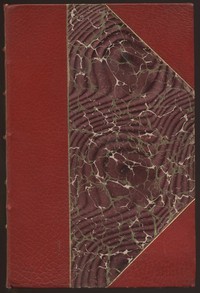Old Mortality, Volume 2. by Walter Scott (most important books to read txt) 📗

- Author: Walter Scott
Book online «Old Mortality, Volume 2. by Walter Scott (most important books to read txt) 📗». Author Walter Scott
"Mr Morton," replied the Duke, "you are young, but you must have seen enough of the world to perceive, that requests, by no means dangerous or unreasonable in themselves, may become so by the way in which they are pressed and supported."
"We may reply, my lord," answered Morton, "that this disagreeable mode has not been resorted to until all others have failed."
"Mr Morton," said the Duke, "I must break this conference short. We are in readiness to commence the attack; yet I will suspend it for an hour, until you can communicate my answer to the insurgents. If they please to disperse their followers, lay down their arms, and send a peaceful deputation to me, I will consider myself bound in honour to do all I can to procure redress of their grievances; if not, let them stand on their guard and expect the consequences.—I think, gentlemen," he added, turning to his two colleagues, "this is the utmost length to which I can stretch my instructions in favour of these misguided persons?"
"By my faith," answered Dalzell, suddenly, "and it is a length to which my poor judgment durst not have stretched them, considering I had both the King and my conscience to answer to! But, doubtless, your Grace knows more of the King's private mind than we, who have only the letter of our instructions to look to."
Monmouth blushed deeply. "You hear," he said, addressing Morton, "General Dalzell blames me for the length which I am disposed to go in your favour."
"General Dalzell's sentiments, my lord," replied Morton, "are such as we expected from him; your Grace's such as we were prepared to hope you might please to entertain. Indeed I cannot help adding, that, in the case of the absolute submission upon which you are pleased to insist, it might still remain something less than doubtful how far, with such counsellors around the King, even your Grace's intercession might procure us effectual relief. But I will communicate to our leaders your Grace's answer to our supplication; and, since we cannot obtain peace, we must bid war welcome as well as we may."
"Good morning, sir," said the Duke; "I suspend the movements of attack for one hour, and for one hour only. If you have an answer to return within that space of time, I will receive it here, and earnestly entreat it may be such as to save the effusion of blood."
At this moment another smile of deep meaning passed between Dalzell and Claverhouse. The Duke observed it, and repeated his words with great dignity.
"Yes, gentlemen, I said I trusted the answer might be such as would save the effusion of blood. I hope the sentiment neither needs your scorn, nor incurs your displeasure."
Dalzell returned the Duke's frown with a stern glance, but made no answer. Claverhouse, his lip just curled with an ironical smile, bowed, and said, "It was not for him to judge the propriety of his Grace's sentiments."
The Duke made a signal to Morton to withdraw. He obeyed; and, accompanied by his former escort, rode slowly through the army to return to the camp of the non-conformists. As he passed the fine corps of Life-Guards, he found Claverhouse was already at their head. That officer no sooner saw Morton, than he advanced and addressed him with perfect politeness of manner.
"I think this is not the first time I have seen Mr Morton of Milnwood?"
"It is not Colonel Grahame's fault," said Morton, smiling sternly, "that he or any one else should be now incommoded by my presence."
"Allow me at least to say," replied Claverhouse, "that Mr Morton's present situation authorizes the opinion I have entertained of him, and that my proceedings at our last meeting only squared to my duty."
"To reconcile your actions to your duty, and your duty to your conscience, is your business, Colonel Grahame, not mine," said Morton, justly offended at being thus, in a manner, required to approve of the sentence under which he had so nearly suffered.
"Nay, but stay an instant," said Claverhouse; "Evandale insists that I have some wrongs to acquit myself of in your instance. I trust I shall always make some difference between a high-minded gentleman, who, though misguided, acts upon generous principles, and the crazy fanatical clowns yonder, with the bloodthirsty assassins who head them. Therefore, if they do not disperse upon your return, let me pray you instantly come over to our army and surrender yourself, for, be assured, they cannot stand our assault for half an hour. If you will be ruled and do this, be sure to enquire for me. Monmouth, strange as it may seem, cannot protect you—Dalzell will not—I both can and will; and I have promised to Evandale to do so if you will give me an opportunity."
"I should owe Lord Evandale my thanks," answered Morton, coldly, "did not his scheme imply an opinion that I might be prevailed on to desert those with whom I am engaged. For you, Colonel Grahame, if you will honour me with a different species of satisfaction, it is probable, that, in an hour's time, you will find me at the west end of Bothwell Bridge with my sword in my hand."
"I shall be happy to meet you there," said Claverhouse, "but still more so should you think better on my first proposal."
They then saluted and parted.
"That is a pretty lad, Lumley," said Claverhouse, addressing himself to the other officer; "but he is a lost man—his blood be upon his head."
So saying, he addressed himself to the task of preparation for instant battle.
CHAPTER X. But, hark! the tent has changed its voice, There's peace and rest nae langer. Burns. The Lowdien Mallisha they Came with their coats of blew; Five hundred men from London came, Claid in a reddish hue. Bothwell Lines.
When Morton had left the well-ordered outposts of the regular army, and arrived at those which were maintained by his own party, he could not but be peculiarly sensible of the difference of discipline, and entertain a proportional degree of fear for the consequences. The same discords which agitated the counsels of the insurgents, raged even among their meanest followers; and their picquets and patrols were more interested and occupied in disputing the true occasion and causes of wrath, and defining the limits of Erastian heresy, than in looking out for and observing the motions of their enemies, though within hearing of the royal drums and trumpets.
There was a guard, however, of the insurgent army, posted at the long and narrow bridge of Bothwell, over which the enemy must necessarily advance to the attack; but, like the others, they were divided and disheartened; and, entertaining the idea that they were posted on a desperate service, they even meditated withdrawing themselves to the main body. This would have been utter ruin; for, on the defence or loss of this pass the fortune of the day was most likely to depend. All beyond the bridge was a plain open field, excepting a few thickets of no great depth, and, consequently, was ground on which the undisciplined forces of the insurgents, deficient as they were in cavalry, and totally unprovided with artillery, were altogether unlikely to withstand the shock of regular troops.
Morton, therefore, viewed the pass carefully, and formed the hope, that by occupying two or three houses on the left bank of the river, with the copse and thickets of alders and hazels that lined its side, and by blockading the passage itself, and shutting the gates of a portal, which, according to the old fashion, was built on the central arch of the bridge of Bothwell, it might be easily defended against a very superior force. He issued directions accordingly, and commanded the parapets of the bridge, on the farther side of the portal, to be thrown down, that they might afford no protection to the enemy when they should attempt the passage. Morton then conjured the party at this important post to be watchful and upon their guard, and promised them a speedy and strong reinforcement. He caused them to advance videttes beyond the river to watch the progress of the enemy, which outposts he directed should be withdrawn to the left bank as soon as they approached; finally, he charged them to send regular information to the main body of all that they should observe. Men under arms,





Comments (0)